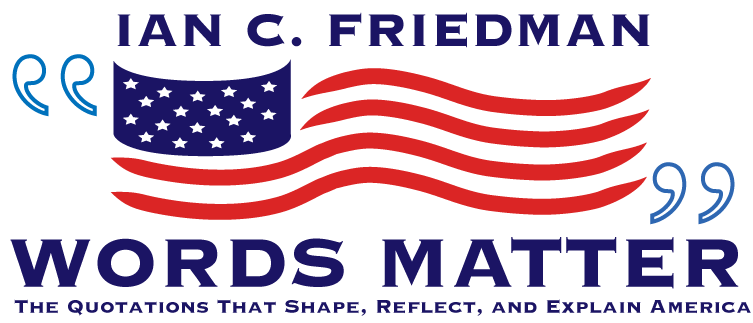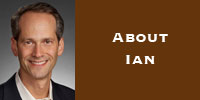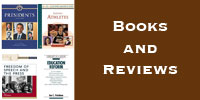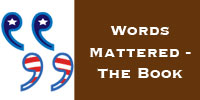“I felt like the moon, the stars, and all the planets had fallen on me.” – Harry S. Truman, April 13, 1945
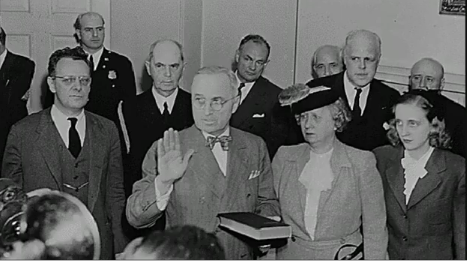 Vice President Harry Truman was escorted to the private quarters of First Lady Eleanor Roosevelt less than two hours after the death of President Franklin Roosevelt. He did not know that Roosevelt had died in Warm Springs, Georgia earlier that day until Eleanor put her hand on his shoulder and told him, “Harry, the President is dead.” Truman was stunned and paused briefly before asking her, “Is there anything I can do for you?” Responded Mrs. Roosevelt, “Is there anything we can do for you. For you are the one in trouble now.”
Vice President Harry Truman was escorted to the private quarters of First Lady Eleanor Roosevelt less than two hours after the death of President Franklin Roosevelt. He did not know that Roosevelt had died in Warm Springs, Georgia earlier that day until Eleanor put her hand on his shoulder and told him, “Harry, the President is dead.” Truman was stunned and paused briefly before asking her, “Is there anything I can do for you?” Responded Mrs. Roosevelt, “Is there anything we can do for you. For you are the one in trouble now.”
The following day, April 13, was marked by deep sorrow and widespread chaos throughout the White House. Many staff members had been up all night arranging funeral arrangements for Roosevelt, while Truman, saying he wanted to be with friends, met with 17 invited members of Congress for lunch. During this meeting he told the men that he needed their help. According to historian David McCullough’s biography Truman, the new president “felt overwhelmed and he didn’t mind saying so.”
Truman exited the lunch meeting and encountered a gathering of reporters. He had enjoyed generally very positive relationships with the press since coming to Washington and despite his obvious tension, Truman warmed as he spoke with them, saying:
“Boys, if you ever pray, pray for me now. I don’t know whether you fellows ever had a load of hay fall on you, but when they told me yesterday what had happened, I felt like the moon, the stars, and all the planets had fallen on me.”
After this first physically and emotionally exhausting day as president, Truman returned to his home on Connecticut Avenue, had a quick dinner of a turkey sandwich and milk, and called his mother in Missouri.
More than any president in American history–at least any since Andrew Johnson followed Abraham Lincoln–Truman had reason to feel the particularly heavy burden of his new office. Though he had been elected to the U.S. Senate a little over ten years earlier, Truman was rarely thought of as presidential material by colleagues in Washington and Americans around the country who still barely knew him. As McCullough noted in Truman, “To many it was not just that the greatest of men had fallen, but that the least of men–or at any rate the least likely of men–had assumed his place.”
Outside of exchanging pleasantries at Cabinet meetings, Truman had only spoken to Roosevelt twice since becoming vice president in January 1945. He had never been informed of the secret American plans to build and possibly use an atomic weapon, though he soon would be faced with making that most monumental of decisions.
As he had with other challenges from his life–working hard Missouri farms, serving in World War I, and rebounding after his haberdashery business failed–Truman pursued duties with tremendous diligence. His first public task was reassuring the nation that though Roosevelt had passed, his goals would continue. On April 16, Truman addressed a joint session of Congress and an audience of millions of Americans listening on their radios. He began by praising Roosevelt before pivoting to the unrelenting American goal of victory in World War II:
No man could possibly fill the tremendous void left by the passing of that noble soul. No words can ease the aching hearts of untold millions of every race, creed and color. The world knows it has lost a heroic champion of justice and freedom.
Tragic fate has thrust upon us grave responsibilities. We must carry on. Our departed leader never looked backward. He looked forward and moved forward. That is what he would want us to do. That is what America will do.
So much blood has already been shed for the ideals which we cherish, and for which Franklin Delano Roosevelt lived and died, that we dare not permit even a momentary pause in the hard fight for victory.
Today, the entire world is looking to America for enlightened leadership to peace and progress. Such a leadership requires vision, courage and tolerance. It can be provided only by a united nation deeply devoted to the highest ideals.
With great humility I call upon all Americans to help me keep our nation united in defense of those ideals which have been so eloquently proclaimed by Franklin Roosevelt.
I want in turn to assure my fellow Americans and all of those who love peace and liberty throughout the world that I will support and defend those ideals with all my strength and all my heart. That is my duty and I shall not shirk it.
So that there can be no possible misunderstanding, both Germany and Japan can be certain, beyond any shadow of a doubt, that America will continue the fight for freedom until no vestige of resistance remains!
We are deeply conscious of the fact that much hard fighting is still ahead of us.
Having to pay such a heavy price to make complete victory certain, America will never become a party to any plan for partial victory!
To settle for merely another temporary respite would surely jeopardize the future security of all the world.
Our demand has been, and it remains—Unconditional Surrender!
The speech was well-received and served as a key first step in alleviating much of the concern over Truman’s ability to handle the presidency. Truman undoubtedly still felt the awesome weight of his new responsibilities. But in this immediate aftermath of a traumatic loss and to millions in a still-grieving America, Truman had emerged from his initial challenges in a surprisingly impressive manner. It was a characteristic the often underestimated Truman would display many more times over the next seven years as President of the United States.
